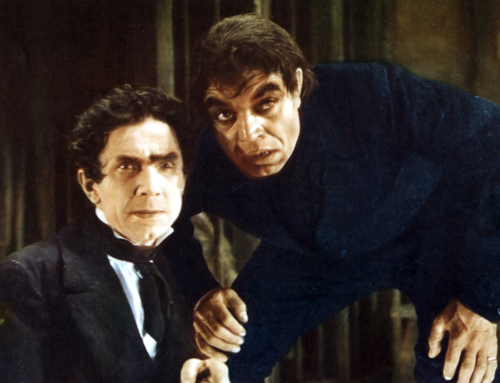In this Advent season, we wait in expectation, we hope for the coming of the Lord Who has come and Who is coming and Who will come again. We remind ourselves of His absence from the lives of so many in the world today, and we pray that graces may come to cure us of our follies and restore us to seriousness and truth.
 It’s the last day of finals for the fall semester at Wyoming Catholic College, and the students, as they write the last sentences on the last essays, rise from their work with a sense of relief, no doubt mixed with a strong tincture of resignation. Tomorrow, most of them will be heading home for the holidays, some driving, some taking advantage of the vans that Student Life runs between here and Denver. I wish them all safe travels and a blessed Christmas.
It’s the last day of finals for the fall semester at Wyoming Catholic College, and the students, as they write the last sentences on the last essays, rise from their work with a sense of relief, no doubt mixed with a strong tincture of resignation. Tomorrow, most of them will be heading home for the holidays, some driving, some taking advantage of the vans that Student Life runs between here and Denver. I wish them all safe travels and a blessed Christmas.
Those of us who have taught for a long time have seen it all before, so much so that we sometimes feel like the old prophet in T.S. Eliot’s The Waste Land who has “foresuffered all”—the repetitions of the curriculum, the departures and returns. But not so. Every class is different, every student distinct. Repetition and difference are central to our work at Wyoming Catholic College, as they are central to our faith; otherwise, we would not repeat each day and each year, always with differences of what we bring and what we take, the great rituals of prayer and liturgy.
Taken in its deepest sense, time has a sacramental character. My own conversion over 40 years ago came through meditating on the astonishing claim that the bread and wine of the Eucharist are what they represent—that they break through the separation between a symbol and what it signifies, as Christ Himself does in the Incarnation. Similarly, in the Church calendar, liturgical time is what it symbolizes, so that Advent places us again in the time of waiting for the Messiah, with the ardor of knowing that He comes. As we approach the Nativity of the Lord, what we expect with such intensity of foreknowledge is what has already happened over 2,000 years ago. What we anticipate in its eternal newness is the repetition of a very old and unrepeatable event that ruptured time itself and in doing so healed an otherwise eternal separation.
In this Advent season, we wait in expectation, we hope for the coming of the Lord Who has come and Who is coming and Who will come again. We remind ourselves of His absence from the lives of so many in the world today, and we pray that graces may come to cure us of our follies and restore us to seriousness and truth. In a time when it seems that “things fall apart,” as W.B. Yeats put it a century ago, when it seems that “the center cannot hold,” we keep faith in the revelation of God.
To all who are part of the Wyoming Catholic College community of friends, and to everyone else too, we wish you a very blessed Advent and a joyous Christmas. May the Nativity at the center of history renew your hope in what is promised, and may the blessings of this season overflow all measure.
This essay was first published here in December 2019.
Republished with gracious permission from Wyoming Catholic College‘s weekly newsletter.
The Imaginative Conservative applies the principle of appreciation to the discussion of culture and politics—we approach dialogue with magnanimity rather than with mere civility. Will you help us remain a refreshing oasis in the increasingly contentious arena of modern discourse? Please consider donating now.
The featured image is “The Angelic Announcement to the Shepherds” by Taddeo Gaddi (1290-1366), courtesy of Wikimedia Commons.







Working as chaplain in a primary school I have been ruminating on the changes I have seen in my lifetime (I am close to 70yo) and the changes in society. Feeling somewhat down, I was sitting outside mid-afternoon with the sun blazing down and a gentle, cool breeze blowing. I was looking at the foliage of a huge gum tree (I live in Australia); looking without really seeing when, in the middle of the greenery with all it shades, and haloed with light, I clearly saw in the midst of it, a dove, so small, so beautiful, seemingly fragile and lost in the mass. I felt God say to me, “In the midst of the modern chaos, my Spirit broods.”
Beautiful sentiment!